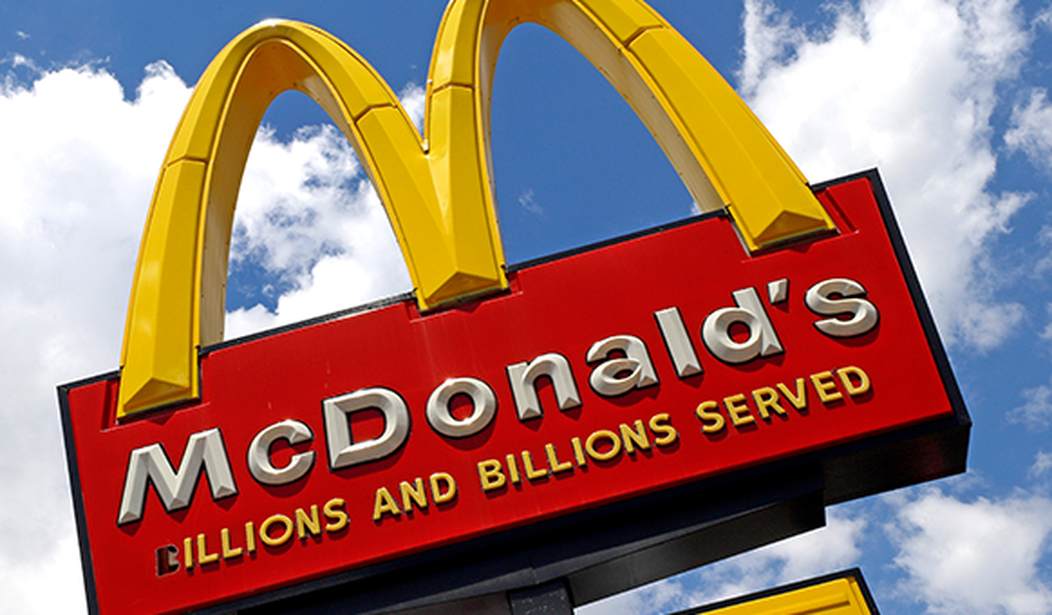Bidenomics finally managed to do something we haven't seen since the stupid, unnecessary, and illegal COVID lockdowns kept people trapped in their homes for weeks or months on end: high prices have forced McDonald's sales down.
The fast-food giant's same-store sales fell "for the first time in nearly four years in the second quarter as inflation-weary consumers skipped meals out or chose cheaper options," according to the Los Angeles Times. McDonald’s Chairman, President, and CEO Chris Kempczinski told investors on Monday's quarterly conference call, "Consumers still recognize us as the value leader versus our key competitors, it’s clear that our value leadership gap has recently shrunk."
Most tellingly, while foot traffic was down at locations that had been open for at least one year — i.e., there were fewer customers — those who did come spent more because of price hikes. Kempczinski said McDonald's is doing a "comprehensive rethink" of its pricing. Shares were up 3% on the news.
A rethink is certainly needed. $5 will now get your kid or grandkid a Happy Meal — on sale — but not too long ago that was the regular price for a Quarter Pounder with Cheese Meal. Morning Consult reported last week that "The labor market is cooling, price pressures are dissipating, and U.S. consumers’ willingness to splurge is looking increasingly tapped out."
Joe Erlinger, head of the company's U.S. operations, defended its prices in May. He wrote in a statement, "The average price of a Big Mac in the U.S. was $4.39 in 2019. Despite a global pandemic and historic rises in supply chain costs, wages and other inflationary pressures in the years that followed, the average cost is now $5.29. That’s an increase of 21%," which is in line with overall inflation.
But it also doesn't tell the whole story.
Recommended: So 'White Dudes For Kamala' Had a Celebrity-Filled Zoom Call and the Cringe Was Epic
While the average price of a Big Mac might only be up 21%, the median price is higher. There are 39 million consumers in California who pay much more because of the state's new $20 minimum wage for fast food workers. A similar story can be told about eight million customers in high-cost New York City, another couple million in Denver, etc.
California's epic economic mismanagement is hurting employees, too, who are working fewer hours.
When wages do finally catch up to inflation, McDonald's — and the entire fast-food industry — might still have a problem on its hands.
If inflation has me eating out less often (and it does), I've found myself more likely to skip the McD drive-thru and spend a few extra bucks for lunch at my corner sports bar. I can get a better burger and fries, or even pizza. Plus a beer or a martini. Sure, it's 50% more (with that beer) than the drive-thru but it's a better experience — and I'm only doing it once every couple of weeks instead of once or twice a week. And that used to cost twice as much.
The value proposition between fast food and regular dining has changed significantly in the last few years, and McDonald's is going to have to get serious about that "comprehensive rethink" of its pricing to change it back.










Join the conversation as a VIP Member